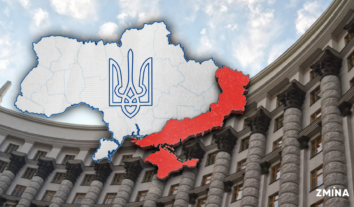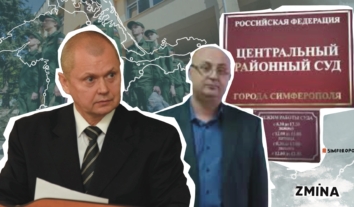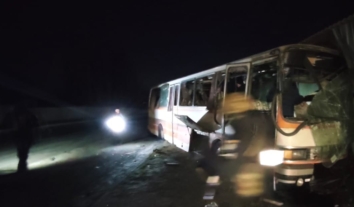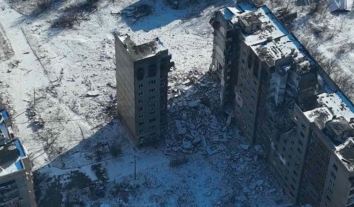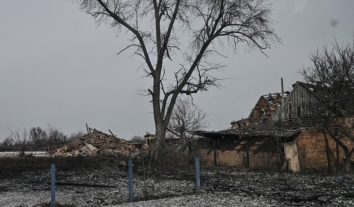Psychiatric hospitals and psycho-neurological residential facilities: torture instead of help
The people, who have not been going outside for years. The uncared-for residents with bedsores. Wet drawsheets instead of diapers. The stench which makes your eyes tear. The “occupational therapy” instead of rehabilitation, including at the backyards of employees of the residential facilities. The monitoring groups of the National Preventive Mechanism (NPM) became witnesses to such conditions in the psycho-neurological institutions in Chernihiv region.
The Levonky psychiatric hospital
It became known that conditions of residence and treatment in the Levonky psychiatric hospital are terrible and do not meet even minimum standards already in July, after the visit of representatives of the department for the NPM implementation of the Secretariat of the Ukrainian Parliament Commissioner for Human Rights and public monitors.
“It’s not treatment, it’s labor slavery. The day schedule in this hospital was elaborated for cows, not for patients. The patients have breakfast at 7 o’clock in the morning and go to work,” said head of the Human Rights Information Centre Tetiana Pechonchyk, who took part in the monitoring visit.
Some of the patients have stayed in the hospital for 20-30 years, although such patients should live in the residential facility. They give their pensions to the medical staff of the institution. The funds are spent not only on bread and products (UAH 6.56 a day are allocated for food for patients, people are malnourished and have to buy bread at their own expense), but also on the needs of the hospital: repair works and construction materials, purchase of bed linen and so on.
The rooms are too small: the area of 2.2 m² per one bed is smaller than in a penal colony, although the standards set the area of at least 6 m² per person in such institutions.

Only staff can use the toilets in the premises, while the patients use the outdoor toilets without doors even in winter.
The letter from the health department of the Chernihiv Regional State Administration claims that decision was made to transfer some patients to other facilities and to teach the nurses and junior staff care skills and providing aid to such patients.
The Horodnia psycho-neurological residential facility
“During the visit to the Horodnia psycho-neurological residential facility, we witnessed negligent care for immobile women on part of the facility’s staff: the women had no diapers, they were wet, they lay in urine, the wooden floor in the rooms was dejection-soaked giving the strong odor. However, the diapers were found at the warehouse. The patient with cancer has not been examined by an oncologist for three years,” said Iryna Serhienko, the representative of the department for the NPM implementation of the Office of the Ukrainian Parliament Commissioner for Human Rights.
%%GALLERY%%
No studies are scheduled in the psycho-neurological residential facility, so people just sit or walk through the corridors all day long, work in kitchen gardens and tend cows. When the monitors asked why 38 bedridden residents are cared only by one nurse’s aide, the nurse and the director of the facility said that another nurse’s aide went with residents to dig beets. Some women told the monitors that when the patients refused to go to work, the staff threatened not to give them their share of pension. The patients also complained of bad food and malnutrition.
The rehabilitation is not conducted in the institution. “One of the rooms of an area of 10 square meters is home to two women at the age of 47 who use wheelchairs with additional help. We found only one bed in this room. It turned out that one of the women sleep in the wheelchair, which can change the position. She spends her whole life is in this wheelchair. Having answered to our questions typing on the phone (she can’t speak due to her health condition), the woman explained that she has got used to this and she is okay with it,” NPM monitor Serhiy Burov said.
The Liubetsky psycho-neurological residential facility
The patients of the Liubetsky psycho-neurological residential facility have not been going outside for several years as there are no ramps for wheelchairs in the department for seriously ill patients. The residents from the department for unreliable (women who are prone to escape) have not been allowed to go outside for three years. There is no shower in the department. According to the women, they are watered with a hose. One of the departments lacks tanks with drinking water and its staff does not use diapers. UAH 1.45 per day is allocated for a patient treatment.
Fenced off with distances and enclosure
Such violations are typical not only of the institutions of Chernihiv region, visited by the monitors of the National Preventive Mechanism. According to the Health Ministry and the Social Policy Ministry, which oversee such institutions, as of January 1, 144 psycho-neurological residential facilities, home to nearly 28,300 people with mental disorders, and 70 psychiatric hospitals meant for 30,000 beds operated in Ukraine. The vast majority of them are located at a considerable distance from regional centers. The society has “fenced off” from “them” with enclosure and distance. These people are not on the “agenda” of the country no matter what power comes. “The situation we witnessed during the visits, unfortunately, only confirms the systemic problems in the psychiatric hospitals and residential facilities. A significant part of residents of these institutions live in the environment which, in terms of international experience, is equal to cruel treatment and torture,” said Volodymyr Shurduk, representative of the department for the NPM implementation, the specialist in psychiatry.
NPM monitor Tetiana Pechonchyk added, “The staff of the facilities (often demoralized and overbusy) just do not see people in the patients of the psychiatric hospitals and the clients of the psycho-neurological residential facilities. The reason is not that cruel people work there. They often just do not know how to do their work in another way. Most of the staff of the residential facilities lack even minimum skills to work in the social sphere and in the sphere of medical services. The requirements for the junior medical staff are very simple: to do all the difficult, dirty, nervous work of serving the patients for a penny and often with double or triple load.”








